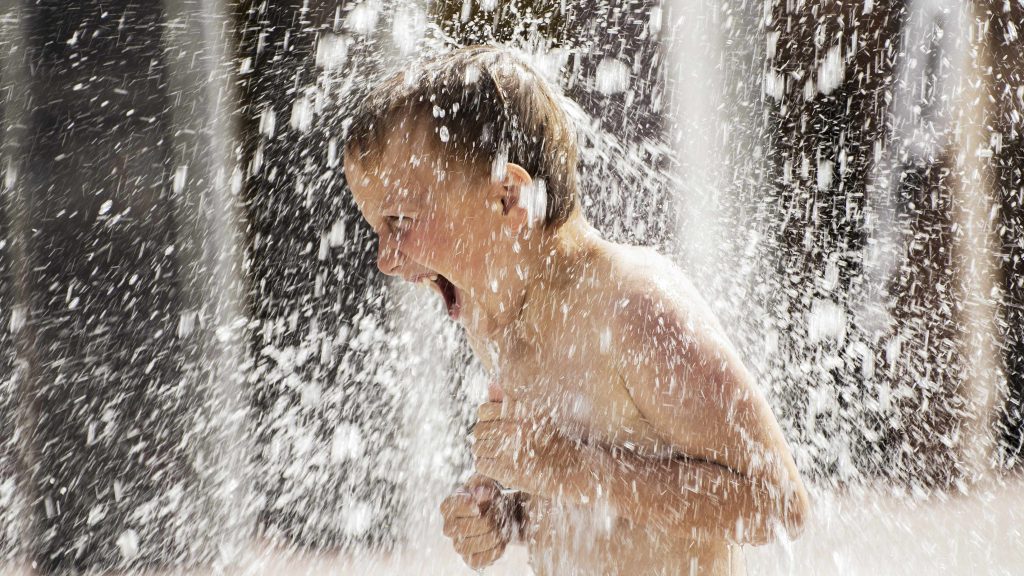
While summer is halfway over, it's never too late to heed reminders about the dangers of high temperatures that can lead to heatstroke and exhaustion.
"Heatstroke is usually due to prolonged exposure to high temperatures or physical exertion in high temperatures," says Dr. Brian Bartlett, an emergency medicine physician at Mayo Clinic Health System in Mankato. "Heatstroke occurs when the body reaches a temperature of 104 degrees or higher, and symptoms can include confusion, altered speech, nausea or vomiting, rapid breathing and a racing heartbeat, among other symptoms."
Heatstroke is a serious condition that requires immediate medical attention. The good news is that it's often predictable and preventable.
Take these steps to prevent heatstroke during hot weather:
- Wear loose-fitting, lightweight clothing. Wearing excess clothing or clothing that fits tightly won't allow your body to cool properly.
- Protect against sunburn. Sunburn affects your body's ability to cool itself, so protect yourself outdoors with a wide-brimmed hat and sunglasses and use a broad-spectrum sunscreen with a sun protection factor, or SPF, of at least 15. Apply sunscreen generously, and reapply every two hours — or more often if you're swimming or sweating.
- Drink plenty of fluids. Staying hydrated will help your body sweat and maintain a normal body temperature.
- Take extra precautions with certain medications. Be on the lookout for heat-related problems if you take medications that can affect your body's ability to stay hydrated and dissipate heat.
- Never leave anyone in a parked car. This is a common cause of heat-related deaths in children. When parked in the sun, the temperature in your car can rise 20 degrees Fahrenheit, or more than 6.7 degrees, in 10 minutes. It's not safe to leave a person in a parked car in warm or hot weather, even if the windows are cracked or the car is in shade. When your car is parked, keep it locked to prevent a child from getting inside.
- Take it easy during the hottest parts of the day. If you can't avoid strenuous activity in hot weather, drink fluids and rest frequently in a cool spot. Try to schedule exercise or physical labor for cooler parts of the day, such as early morning or evening.
- Get acclimated. Limit time spent working or exercising in heat until you're conditioned to it. People who are not used to hot weather are especially susceptible to heat-related illness. It can take several weeks for your body to adjust to hot weather.
- Be cautious if you're at increased risk. If you take medications or have a condition that increases your risk of heat-related problems, avoid the heat and act quickly if you notice symptoms of overheating. If you participate in a strenuous sporting event or activity in hot weather, make sure there are medical services available in case of a heat emergency.
If heatstroke occurs, emergency treatment is required. Untreated heatstroke can quickly damage your brain, heart, kidneys and muscles.
The damage worsens the longer treatment is delayed, increasing your risk of serious complications or death.
Seek medical treatment immediately if you experience these symptoms:
- High body temperature
- Altered mental state or behavior
Confusion, agitation, slurred speech, irritability, delirium, seizures and coma can all result from heatstroke. - Alteration in sweating
In heatstroke brought on by hot weather, your skin will feel hot and dry to the touch. However, in heatstroke brought on by strenuous exercise, your skin may feel dry or slightly moist. - Nausea and vomiting
You may feel sick to your stomach or vomit. - Flushed skin
Your skin may turn red as your body temperature increases. - Rapid breathing
Your breathing may become rapid and shallow. - Racing heart rate
Your pulse may significantly increase because heat stress places a tremendous burden on your heart to help cool your body. - Headache Your head may throb.
Related posts
Keeping cool in blistering hot weather
Heat and exercise: Keeping cool in hot weather







